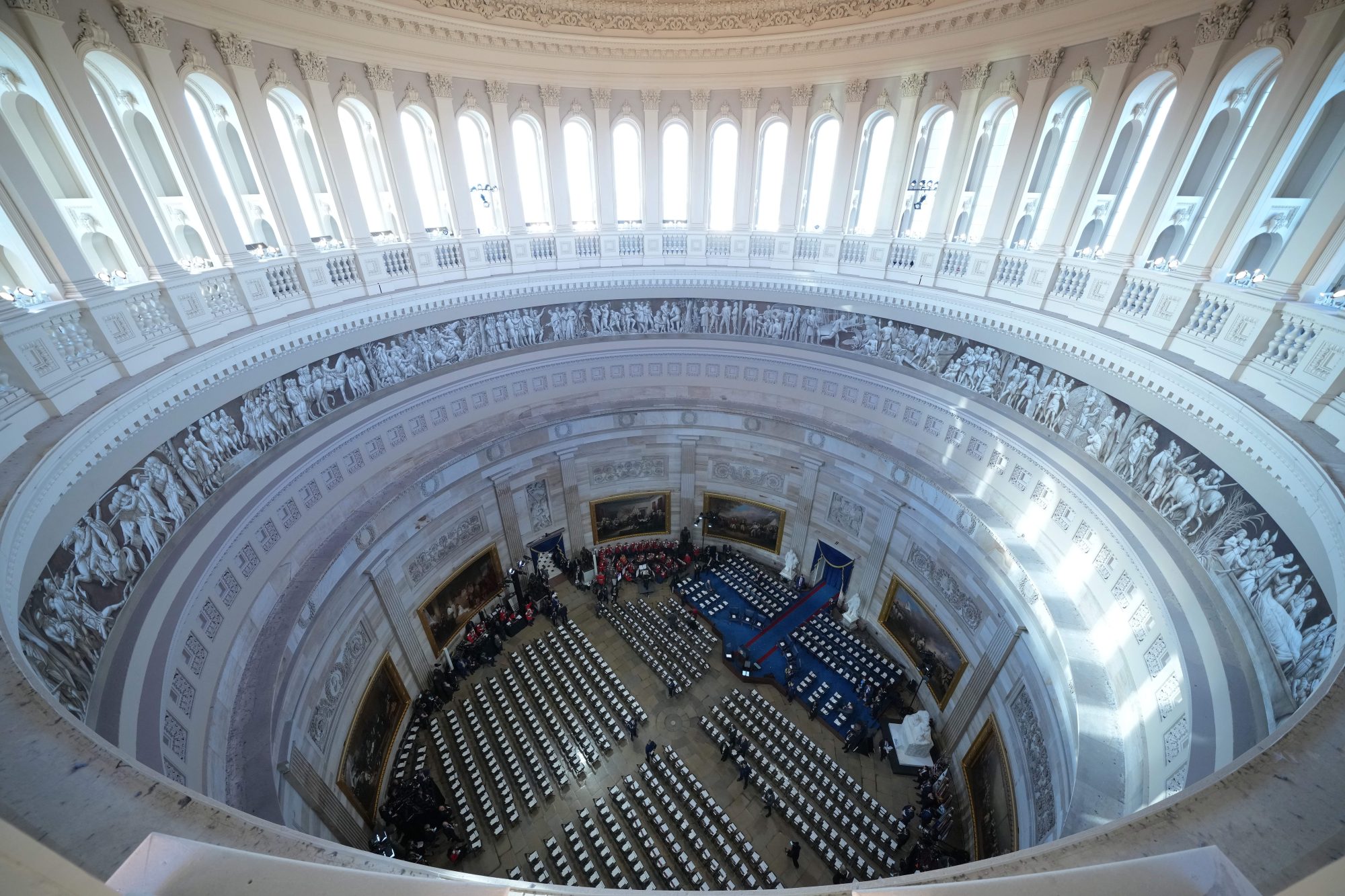As Russell White, who runs an association of dozens of NIL (name, image, and likeness) collectives, was leaving a Senate office meeting in Washington, D.C., earlier this week, he had a somewhat awkward run-in. He came face-to-face with Big Ten representatives, who were awaiting their own rendezvous with lawmakers.
“There were those kind of head nods,” White, the president of The Collective Association (TCA), tells Front Office Sports. “When you recognize each other, you know each other—but maybe you’re not the closest of friends.”
The NCAA and conferences were in Washington to continue to ask Congress to codify the House v. NCAA settlement (which allows for revenue-sharing) and declare athletes amateurs, rather than employees. But the real prize is an antitrust exemption, which would allow them to police the settlement’s terms themselves, and would halt the barrage of lawsuits that have forced them to change to amateurism up to this point.
TCA met with about 40 offices, both Republican and Democrat, in the House and Senate this week—at the same time as NCAA and power conference administrators were doing the same thing. White described a lack of movement on Capitol Hill toward an NCAA-friendly law, despite the fact that the red wave was expected to help the NCAA’s interests.
The majority of congressional offices TCA spoke with appear uninterested in granting the NCAA its coveted antitrust exemption, regardless of their political affiliation.
“What’s radical [to lawmakers] is not that athletes are being paid,” another attendee of the meetings on behalf of collectives tells FOS. “What’s radical is that the traditional members of college sports need an antitrust exemption. … That’s the biggest hang-up.”
Some offices are already on record about how amenable they would be to the NCAA’s requests. Sen. Ted Cruz (R., Texas), now the head of the Senate Commerce Committee, has released discussion drafts that would give the NCAA at least some antitrust immunity, as well as a no-employee clause. Cruz has said that a college sports bill is a priority in his committee during this Congress, but he has also acknowledged that it would have to be bipartisan.
Democrats are less likely to grant antitrust immunity and a no-employee clause, sources have previously told FOS, given those issues fall on the broader political spectrum (though some, like Sen. Richard Blumenthal [D., Conn.] have said they’re open to the no-employee status idea). But not all of Cruz’s Republican colleagues are on board with antitrust immunity, either, TCA’s meetings revealed—making an NCAA-friendly bill even more difficult to pass.
The lack of consensus is part of the reason a growing number of college sports stakeholders, from football coaches to Olympic sports associations, have all lobbied up in the past several months. They all want to ensure they have input in college sports’ next era.
The Collective Association, for its part, is trying to advocate for what’s best for the players they work with every day, and field questions from legislators regularly on the best way forward, White says. “We talk through pretty much every aspect of the ecosystem.” Sometimes, that means agreeing with the NCAA. Other times, it doesn’t.
Giving the NCAA an antitrust exemption creates an existential threat for collectives. “College football will be just fine if there is no antitrust exemption,” White says. “The ‘sky is falling’ narrative is unreasonable.”
The group isn’t on board with all of the House v. NCAA settlement terms, either.
Collectives continued to lobby this week against a portion of the settlement that would give a third party (the NCAA has chosen Deloitte) the power to block NIL collective deals over $600 that could be seen as “pay-for-play,” rather than offering “fair-market value.” The clearinghouse is bad for collectives because it hinders their operations—but it’s also potentially bad for players because it hinders their paychecks. White calls it “garbage.”
White also said he raised issues with the roster limits that could be imposed as part of the settlement, because they have the ability to decimate the nation’s valuable Olympic pipeline. “I think taking the opportunity away from 20,000 to 30,000 athletes in non-revenue or Olympic sports is always concerning,” he says.
But he wanted to set the record straight on one thing: TCA is not lobbying in favor of collective bargaining or athlete-employee status, as some have suggested. “That’s laughable,” he says. “We’re not labor professionals; we’re not people who are up there that are saying, ‘This is how it should be.’”
His suggestion: Ask the players what they want. “The athletes need to be involved in the system that’s being created that they will be operating under.”





![[Subscription Customers Only] Jul 13, 2025; East Rutherford, New Jersey, USA; Chelsea FC midfielder Cole Palmer (10) celebrates winning the final of the 2025 FIFA Club World Cup at MetLife Stadium](https://frontofficesports.com/wp-content/uploads/2026/02/USATSI_26636703-scaled-e1770932227605.jpg?quality=100&w=1024)











